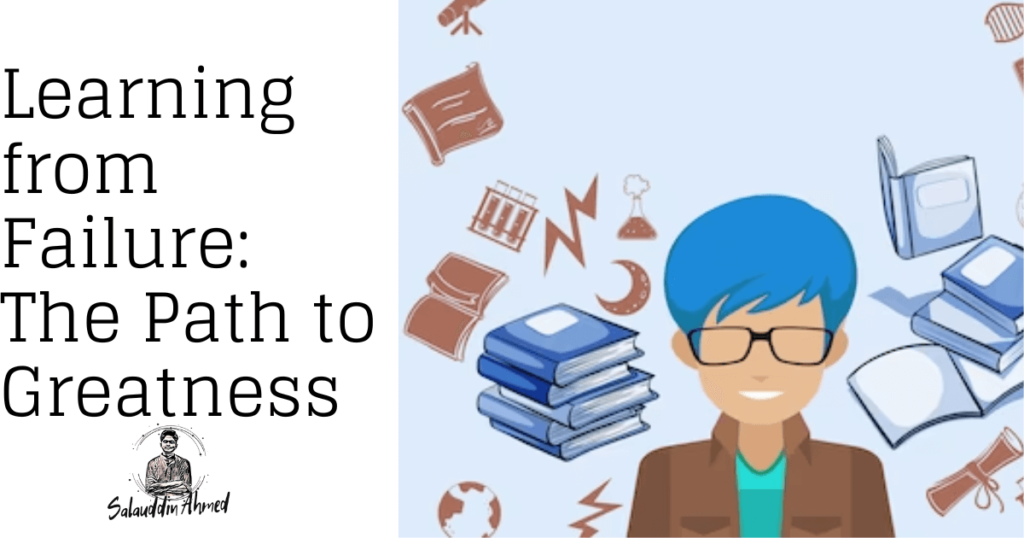Failure—the word itself carries a heavy weight of disappointment and discouragement. It’s natural for us to fear failure and avoid it at all costs.
However, the truth is that failure is an essential part of our journey toward success. In this blog, we will delve into learning from failure and explore the concept of failing, highlighting how some of the greatest minds in history have turned failures into stepping stones to achieving greatness.
By acknowledging failure as a valuable learning experience, we can unlock our true potential and embrace a mindset of growth and resilience.
Failure as a Catalyst for Growth
Failure is often seen as a negative outcome, something to be ashamed of or avoid altogether. However, embracing failure can be a powerful catalyst for personal and professional growth.
When we fail, we are forced to reflect on our actions, identify areas of improvement, and learn valuable lessons. By embracing failure, we can develop resilience, perseverance, and a growth mindset.
Embracing Failure: Lessons from Great Minds

Throughout history, countless individuals have faced failure and setbacks on their path to success. Let’s explore some notable examples:
Thomas Edison
Edison, the inventor of the light bulb, experienced numerous failures before achieving success. He famously stated, “I have not failed. I’ve just found 10,000 ways that won’t work.”
Edison’s persistence and willingness to learn from his failures ultimately led to one of the most significant inventions of all time.
Albert Einstein
The renowned physicist struggled academically as a child, leading many to believe he would never achieve greatness.
However, Einstein persisted, and his failures eventually led to groundbreaking theories that transformed our understanding of the universe.
Walt Disney
Disney faced multiple rejections and failures before establishing the iconic entertainment empire we know today.
His resilience in the face of adversity allowed him to create a legacy that continues to inspire millions.
Organizations that Embrace Failure

Not only individuals but also organizations have learned to appreciate failure as an opportunity for growth and innovation. Here are a few examples:
The tech giant encourages employees to take risks and embrace failure through initiatives such as “Google X” and “20% time.”
This approach has led to groundbreaking projects like Google Maps and Gmail.
SpaceX
Elon Musk’s aerospace company has experienced several setbacks, including multiple failed rocket landings and test flights.
However, each failure serves as a learning opportunity for the company, allowing them to refine their technology and achieve remarkable milestones in space exploration.
Amazon
Amazon, led by founder Jeff Bezos, embraces failure as a catalyst for growth and innovation. The company’s culture encourages experimentation and learning from setbacks.
Initiatives like Amazon Web Services (AWS) overcame skepticism to become a leading cloud platform.
With a “Day 1” philosophy, Amazon maintains a startup mindset that values agility and risk-taking.
Embracing failure has allowed Amazon to disrupt industries and achieve success in e-commerce, streaming services, and smart home devices.
Failure is seen as valuable feedback for continuous improvement. Amazon’s culture empowers employees to challenge norms and push boundaries, contributing to its ongoing achievements.
Conclusion
Failure is not the end but a vital part of our journey towards success. By shifting our perspective and embracing failure as a learning experience, we can unlock our true potential and achieve greatness.
Through the examples of renowned individuals and organizations, we have seen how failure can be a stepping stone to innovation and transformation.
So, let us celebrate our failures, for they hold the key to our growth, resilience, and ultimate success.

